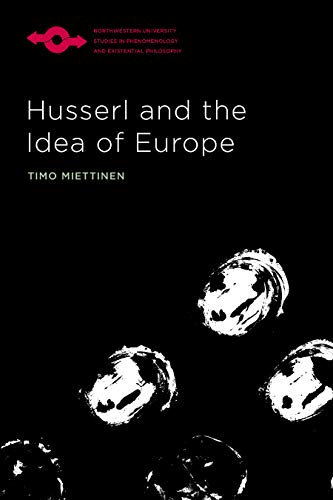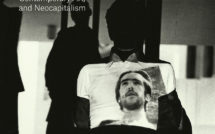

A somewhat unforeseen reawakening of the debate around the enfranchizing potential of political universalism has taken place in the past decade. Many theorists, such as Chantal Mouffe, saw this renewal as a valid antagonistic response to the surge of nationalist populism in Europe and the consolidation of liberal ideologies worldwide. Others, such as Vivek Chibber, embraced it as an exigency imposed by capital’s logic of global reproduction taking over local economic structures, social institutions, and cultural practices. Chibber’s defense of political universalism grew out of his critique of what he identified as postcolonial theory’s inherent Orientalism. Apart from “the universal drive of capital,” he identified “the universal interest of the subaltern classes.”[1] The latter he saw as a struggle that calls for values lying beyond the particular culture or region, an effort to defend basic social well-being against capital’s domination far and wide. Whether it occurs in India or Europe, such struggle demands the reinstitution of values pertaining to the universal structure of the lifeworld, and a validation of norms like liberty, autonomy, and democracy that entails the suspension of those norms’ empirical historical origin. To charge such a form of political universalism with Eurocentrism proved far more implausible than to simply put out a call for the “provincialization of Europe.”[2]
If Timo Miettinen’s Husserl and the Idea of Europe stands out as a timely book of crucial theoretical importance, it is above all because it attempts to give us an ontological validation of such practical renewals of political universalism. Although the book has the thematic scope and style of a historical-philosophical investigation, its argument goes far beyond the results of a conventional exegesis. Thinking through Husserl’s mature reflections on the crisis of European sciences and showing that these reflections are best understood in terms of Husserl’s concepts of historicity and generativity, Miettinen provides an original phenomenological account of the ethical and political connotations of universalism. The non-context-specific definition of political and ethical universality can, according to him, be accomplished through an intersubjectively carried out self-critique and a suspension from within of a particular culture or community. This, the author asserts, detaches theoretical universality from its European origins and, instead of deducing it from a Cartesian self-reflecting subject or an institutionalized cultural colonialism, articulates it on the basis of historical and cultural plurality. This conceptual move redefines universality as a “historical teleology,” a notion that reconstitutes reason as an “infinite task.”
I consider Miettinen’s revitalization of Husserl’s normative idea of Europe to be a feasible contribution not only to contemporary Husserlian phenomenology, but also to the recent debates around alternative political identities. What is admirable about this account is its reinforcing of the notion of generativity, a notion that brings together two of Husserl’s most complex concepts: passive genesis and intersubjective temporality. This focus affords Miettinen a productive working out of the idea of universality on the basis of the multiplicity of communities, an account that could serve as a viable phenomenological complement to a number of contemporary postcolonial and neo-Marxist theories.[3] This same focus, however, reveals the distinct one-sidedness of Miettinen’s utilization of Husserl’s reflections on Europe. The claim that we can accomplish a generative constitution of universality merely by undertaking a self-critique from within our present tradition overlooks some Eurocentric pitfalls already enshrined in Husserl’s own work. Miettinen misses an important opportunity to circumvent those pitfalls by playing up alternative motifs in Husserl, such as the correlation Husserl maintains between Europe’s particular crisis as induced by Galileo’s mathematization of nature and the different modalities of communication available to us within the horizon of the lifeworld.[4]
Miettinen develops his “novel understanding of the idea of universalism” through a multilayered reading of Husserl’s major later work, The Crisis of European Sciences and Transcendental Phenomenology (1936). He also refers to numerous unpublished appendices, surrounding manuscripts, as well as a series of articles Husserl published in the Japanese journal Kaizo in the early 1920s. Throughout the examination of this intricate material Miettinen’s purpose remains consistent. By interpretating Husserl’s reflections on Europe from the perspective of historicity and generativity he hopes to develop a novel political phenomenology that would bring forth a “formal” (non-substantial), “pluralistic” and “open to rearticulation” concept of universalism (172).
The author goes about this task by dedicating the central portion of the book (part 3) to the interpretation of Husserl’s account of Greek philosophy as the first historical breakthrough to universality and infinity. This shift to “theoretical attitude” took place as a process of historical reflection (what Husserl calls “phenomenological epoché”) that suspended the particularity of the Greek cultural world in both temporal and territorial sense. It occurred as an act of primal institution (Urstiftung) that “bracketed” the “naïve attitude” of the animated “surrounding world” (Umwelt) and established the sense of philosophy as theória—the scientific rationality valid with respect to all possible realities and cultures.
Despite Husserl’s numerous remarks to the contrary and Derrida’s insightful critique,[5] Miettinen makes all efforts to ascertain that this notion of universal validity does not imply that the Greek view has had a “universal extension over all humanity” (Crisis 378). Instead of a substantialization of the universal, in Husserl’s idea of the “spiritual geography” of Europe Miettinen sees an intertwining of ideal and mundane in the broadest sense. To corroborate this thesis, he discusses at length the relationship between the unique territoriality of the Greek city-states and the relativization of the pre-philosophical worldviews (ch. 5). A parallel discussion focuses on the theoretical leap from the Sophists to Socrates and Plato (ch. 6). Both historical and theoretical accounts aim to chart a path that leads from the particularity of Greek culture to the universality of the epoché. Building on that line of argumentation, the author tries to further demonstrate that, for Husserl, the horizon of theória is distinct not only from the Greek traditional “homeworld” (Heimwelt) but also from its “alienworlds” (Fremdwelten). This demarcation, Miettinen insists, does not separate theória from the concreteness of human experience. It transforms this experience by placing pre-theoretical particular horizons within the “horizon of horizons,” that is within the one shared “lifeworld” (Lebenswelt). However well-sustained—historically and theoretically—Miettinen’s argument might appear, I find his justification of Husserl’s derivation of the teleological universality of the idea of Europe from the particularity of the Greek invention of theória at the very least incomplete. However radically the epoché places out of operation the particular tradition and community that first performed it, this tradition and this community remain its proper content and are thus bound to revisit it each time we perform it. By virtue of this justification, critical self-reflection retains its Greek and European “spiritual shape” even if the community engaged possesses no knowledge of the originating culture.
To a certain degree, Miettinen’s ensuing account of the political manifestations of the lifeworld (ch. 7) hints at a way to avoid the pitfall. The idea of a plurality of overlapping particular historical and cultural worlds must, according to him, be conceived in a distinctly generative sense as a non-foundational telos pointing to the alterity of other generations and worldviews. Miettinen does not claim contemporary liberal democracies exhibit such a plurality. Nor does he adhere to Husserl’s own understanding of cosmopolitan community as a “rational internationality.” Although he follows Klaus Held who insists that the most salient political legacy of Greece is the notion of democracy, Miettinen is explicit that the Greek sense of a political epoché simply demands that we submit to a critical inspection all forms of governance. Thus, the actual reason for Husserl’s return to the Greek idea of political universalism, Miettinen argues, is to use this idea as a “counter-strategy to the modern tradition of substantial universalism” (133).
What we see in this turn of argumentation is nothing less than a diagnosis of the actual source of the political epoché: the crisis of European rationality that proceeded from the mathematization of nature and the ensuing instrumentalization of rational thinking; a process that, as Husserl puts it, brings about a “loss of meaning for life” (Crisis § 2). In our present time, this same process involves the phenomena of technologization and globalization or, to draw on Chibber’s insight, the universalizing tendencies of capital. Miettinen’s argument does not go that far. What I think prevents him from explicitly taking this direction is his insufficient exploration of Husserl’s notion of “communication community” (Mitteilungsgemeinschaft) and the specific modalities of “drive intentionality” and “personalities of higher order” that Husserl attributes to it. While Miettinen misses a chance to address this topic in chapter 4, where he deals with the “phenomenology of sociality,” in the last chapter of the book (ch. 11) he goes as far as to couple the idea of universalism with Husserl’s notion of “community of love” (Liebesgemeinschaft). This is a truly admirable gesture as it manages to save the day in a radically promising way: by overlaying the “community of theory” and the “community of love” (177) in terms of their perpetual renewal.
Boris Pantev is a Lecturer at the Institute of Communication, Culture, Information and Technology, University of Toronto Mississauga. He works in the fields of philosophy of communication and media, social phenomenology, and media archeology. His work explores topics related to media temporality, communication and the unconscious, and the relationship between technology and alterity.
Husserl and the Idea of Europe
By Timo Miettinen
Publisher: Northwestern University Press
Hardcover / 256 pages / 2020
ISBN: 9780810141490
[1] Chibber, Vivek. Postcolonial Theory and the Specter of Capital. London: Verso, 2012, 205.
[2] See Chakrabarty, Dipesh. Provincializing Europe Postcolonial Thought and Historical Difference. Princeton, N.J: Princeton UP, 2000.
[3] The author himself hints at the possibility of such a connection at several occasions throughout the book, notably when he discusses Husserl’s idea of supranational community as a “communistic unity of will” (123).
[4] Husserl is explicit about this correlation in “The Origin of Geometry”, an appendix to his The Crisis of European Sciences and Transcendental Phenomenology. Cf. Husserl, Edmund,. The Crisis of European Sciences and Transcendental Phenomenology: An Introduction to Phenomenological Philosophy. Evanston: Northwestern UP, 1970, 353-378.
[5] Cf. Derrida, Jacques. The Other Heading: Reflections on Today’s Europe. Bloomington, IN: Indiana UP, 1992.




